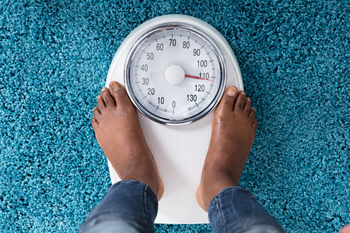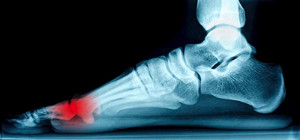Freehold (732) 294-9393
Freehold (732) 294-9393
 Many women experience foot pain during their pregnancy. This is due to a variety of reasons, which often includes additional weight gain, swelling in the latter stages of pregnancy, and hormonal changes. The added weight may shift the center of gravity, and this will typically put more pressure on the feet. Excess swelling can cause shoes to fit incorrectly, and it may be beneficial to change the style of shoes that are generally worn. Research has indicated that uncomfortable swelling can be kept to a minimum when plenty of fresh water is consumed daily. Additionally, it may be helpful to elevate the feet and reduce sodium content in the foods that are eaten. If your foot pain is severe during your pregnancy, it is suggested that you consult with a podiatrist who can offer proper treatment options.
Many women experience foot pain during their pregnancy. This is due to a variety of reasons, which often includes additional weight gain, swelling in the latter stages of pregnancy, and hormonal changes. The added weight may shift the center of gravity, and this will typically put more pressure on the feet. Excess swelling can cause shoes to fit incorrectly, and it may be beneficial to change the style of shoes that are generally worn. Research has indicated that uncomfortable swelling can be kept to a minimum when plenty of fresh water is consumed daily. Additionally, it may be helpful to elevate the feet and reduce sodium content in the foods that are eaten. If your foot pain is severe during your pregnancy, it is suggested that you consult with a podiatrist who can offer proper treatment options.
Pregnant women with swollen feet can be treated with a variety of different methods that are readily available. For more information about other cures for swollen feet during pregnancy, consult with Dr. Henry Miller from New Jersey. Our doctor will attend to all of your foot and ankle needs.
What Foot Problems Can Arise During Pregnancy?
One problem that can occur is overpronation, which occurs when the arch of the foot flattens and tends to roll inward. This can cause pain and discomfort in your heels while you’re walking or even just standing up, trying to support your baby.
Another problem is edema, or swelling in the extremities. This often affects the feet during pregnancy but tends to occur in the later stages.
How Can I Keep My Feet Healthy During Pregnancy?
If you have any questions please feel free to contact our office located in Freehold, NJ . We offer the newest diagnostic and treatment technologies for all your foot and ankle needs.
 Research has indicated 1 billion people in the world are obese.This may play a significant role in causing uncomfortable foot conditions.This is a result of the added weight the feet must endure while completing daily activities. Obese patients may find difficulty in finding shoes that fit correctly, and this leads to foot pain. Additionally, performing regular exercise is helpful in losing extra weight. People who are overweight will find it beneficial to start an exercise routine slowly, and gradually increase the frequency. Walking is considered to be an excellent form of exercise, in addition to cycling, swimming, or weight lifting. If you would like more information about how obesity affects the feet, please consult a podiatrist who can provide you with the proper information.
Research has indicated 1 billion people in the world are obese.This may play a significant role in causing uncomfortable foot conditions.This is a result of the added weight the feet must endure while completing daily activities. Obese patients may find difficulty in finding shoes that fit correctly, and this leads to foot pain. Additionally, performing regular exercise is helpful in losing extra weight. People who are overweight will find it beneficial to start an exercise routine slowly, and gradually increase the frequency. Walking is considered to be an excellent form of exercise, in addition to cycling, swimming, or weight lifting. If you would like more information about how obesity affects the feet, please consult a podiatrist who can provide you with the proper information.
Obesity has become very problematic at this point in time and can have extremely negative effects on the feet. If you’re an obese individual and are concerned about your feet, contact Dr. Henry Miller from New Jersey. Our doctor can provide the care you need to keep you pain-free and on your feet.
Obesity and Your Feet
Since your feet are what support your entire weight when standing, any additional weight can result in pain and swelling. Being overweight is one of the main contributors to foot complications.
Problems & Complications
Extra Weight – Even putting on just a few extra pounds could create serious complications for your feet. As your weight increases, your balance and body will shift, creating new stresses on your feet. This uneven weight distribution can cause pain, even while doing the simplest tasks, such as walking.
Diabetes – People who are overweight are at serious risk of developing type-2 diabetes, which has a drastic impact on the health of your feet. As you get older, your diabetes might worsen, which could lead to loss of feeling in your feet, sores, and bruises. You could also become more prone to various infections.
Plantar fasciitis – Pressure and stress that is placed on muscles, joints, and tendons can trigger plantar fasciitis, which is an inflammation of tissue that forms along the bottom of the foot.
If you have any questions please feel free to contact our office located in Freehold, NJ . We offer the newest diagnostic and treatment technologies for all your foot and ankle needs.
 The bones that are located at the bottom of the big toe are referred to as sesamoid bones. They lie between the tendons of this toe, and pain and discomfort may be caused if inflammation occurs. This can happen as a result of overuse or if a sudden injury happens. Some of the symptoms that are associated with sesamoiditis often include pain while the big toe is pulled upward, and walking may be difficult when weight is placed on the foot. Once a diagnosis is performed, which includes having an X-ray or MRI taken, treatment can begin. It is helpful to wear shoes that provide adequate cushioning, in addition to wearing custom orthotics. If you feel you have sesamoiditis, it is suggested that you schedule a consultation with a podiatrist who can properly treat this condition.
The bones that are located at the bottom of the big toe are referred to as sesamoid bones. They lie between the tendons of this toe, and pain and discomfort may be caused if inflammation occurs. This can happen as a result of overuse or if a sudden injury happens. Some of the symptoms that are associated with sesamoiditis often include pain while the big toe is pulled upward, and walking may be difficult when weight is placed on the foot. Once a diagnosis is performed, which includes having an X-ray or MRI taken, treatment can begin. It is helpful to wear shoes that provide adequate cushioning, in addition to wearing custom orthotics. If you feel you have sesamoiditis, it is suggested that you schedule a consultation with a podiatrist who can properly treat this condition.
Sesamoiditis is an unpleasant foot condition characterized by pain in the balls of the feet. If you think you’re struggling with sesamoiditis, contact Dr. Henry Miller of New Jersey. Our doctor will treat your condition thoroughly and effectively.
Sesamoiditis
Sesamoiditis is a condition of the foot that affects the ball of the foot. It is more common in younger people than it is in older people. It can also occur with people who have begun a new exercise program, since their bodies are adjusting to the new physical regimen. Pain may also be caused by the inflammation of tendons surrounding the bones. It is important to seek treatment in its early stages because if you ignore the pain, this condition can lead to more serious problems such as severe irritation and bone fractures.
Causes of Sesamoiditis
Treatment for sesamoiditis is non-invasive and simple. Doctors may recommend a strict rest period where the patient forgoes most physical activity. This will help give the patient time to heal their feet through limited activity. For serious cases, it is best to speak with your doctor to determine a treatment option that will help your specific needs.
If you have any questions please feel free to contact our office located in Freehold, NJ . We offer the newest diagnostic and treatment technologies for all your foot and ankle needs.
Read more about Sesamoiditis If you have conditions concerning your feet and ankles, you will most likely visit a podiatrist. Doctors of this type treat many foot ailments, including bunions, hammertoe, and ingrown toenails. Many podiatrists design custom-made orthotics, in addition to performing corrective surgery. Podiatrists can choose to practice in a variety of venues. These include hospitals, private or group practice, and extended care facilities. Mandatory schooling consists of four years of college, followed by completing two years of residency training. If you are interested in pursuing a career in podiatry, it is strongly suggested that you consult with a podiatrist who can help you in determining if this career path is right for you.
If you have conditions concerning your feet and ankles, you will most likely visit a podiatrist. Doctors of this type treat many foot ailments, including bunions, hammertoe, and ingrown toenails. Many podiatrists design custom-made orthotics, in addition to performing corrective surgery. Podiatrists can choose to practice in a variety of venues. These include hospitals, private or group practice, and extended care facilities. Mandatory schooling consists of four years of college, followed by completing two years of residency training. If you are interested in pursuing a career in podiatry, it is strongly suggested that you consult with a podiatrist who can help you in determining if this career path is right for you.
If you are experiencing pain in the feet or ankles, don’t join the stubborn majority refusing treatment. Feel free to contact Dr. Henry Miller from New Jersey. Our doctor can provide the care you need to keep you pain-free and on your feet.
What Is a Podiatrist?
Someone would seek the care of a podiatrist if they have suffered a foot injury or have common foot ailments such as heal spurs, bunions, arch problems, deformities, ingrown toenails, corns, foot and ankle problems, etc.
Podiatric Treatment
A podiatrist will treat the problematic areas of the feet, ankle or lower leg by prescribing the following:
A common podiatric procedure a podiatrist will use is a scanner or force plate which will allow the podiatrist to know the designs of orthotics. Patients are then told to follow a series of tasks to complete the treatment. The computer will scan the foot a see which areas show weight distribution and pressure points. The podiatrist will read the analysis and then determine which treatment plans are available.
If you have any questions please feel free to contact our office located in Freehold, NJ . We offer the newest diagnostic and treatment technologies for all your foot and ankle needs.